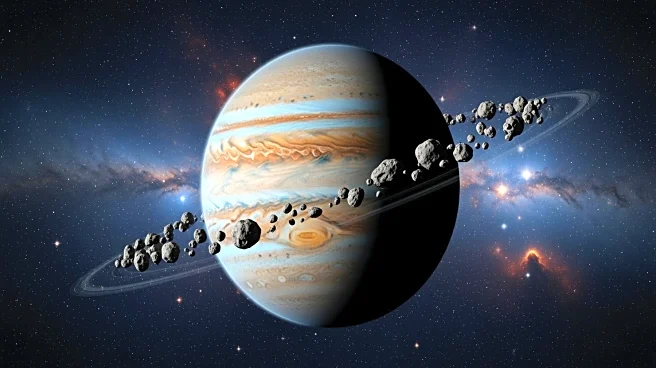What's Happening?
New research from Rice University suggests that Jupiter's rapid early growth significantly influenced the formation of the solar system. The study, published in Science Advances, indicates that Jupiter's gravity
created 'cosmic traffic jams' in the solar system's disk, leading to the formation of planetesimals, the rocky seeds of planets. This process explains why many primitive meteorites, known as chondrites, formed millions of years after the first solid bodies. The findings also suggest that Jupiter's growth prevented young planets from spiraling into the sun, allowing Earth and its neighbors to form.
Why It's Important?
Understanding Jupiter's role in the solar system's formation provides insights into planetary science and the conditions that led to Earth's development. The study highlights the importance of giant planets in shaping planetary systems and preserving distinct isotopic signatures. It also offers explanations for the distribution of planets in the solar system and the preservation of primitive materials like chondrites. These findings could influence future research on planetary formation and the search for life in other star systems.
Beyond the Headlines
The study's implications extend to the observation of young star systems with similar ring-and-gap structures, suggesting that giant planets play a crucial role in shaping their birth environments. This research could lead to a better understanding of the processes that govern the formation of planetary systems and the potential for life beyond Earth.










